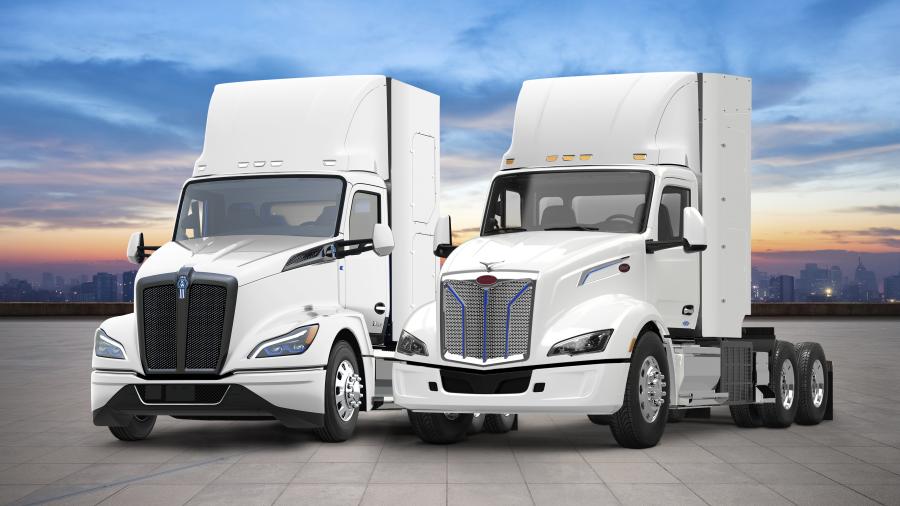
Wed June 07, 2023
Toyota
PACCAR and Toyota Motor North America Inc. announced an expansion of their joint efforts to develop and produce zero emissions, hydrogen fuel cell (FCEV) Kenworth and Peterbilt trucks powered by Toyota's next-generation hydrogen fuel cell modules.
The expanded agreement supports ongoing development and commercialized zero-emission versions of the Kenworth T680 and Peterbilt 579 models featuring Toyota's hydrogen fuel cell powertrain kit, with initial customer deliveries planned for 2024.
PACCAR and Toyota have collaborated on FCEV truck development for the past several years, including a successful pilot program which deployed 10 Kenworth T680 FCEV trucks at the Port of Los Angeles. The pilot provided both Kenworth and Toyota with real-world feedback that further enhanced the performance and range of the vehicle.
Designed for use in heavy-duty commercial vehicles, Toyota's heavy-duty fuel cell electric powertrain kit was recently awarded the Zero Emission Powertrain certification by the California Air Resources Board (CARB). Toyota will begin assembly of the modules in the United States in late 2023.
John Rich, PACCAR chief technology officer, said, "Having worked extensively with the Toyota team, we are confident that our combined efforts can deliver industry leading FCEV trucks with all of the quality, reliability and aftermarket support that Kenworth and Peterbilt customers depend upon. This partnership further expands PACCAR's industry-leading lineup of zero emissions vehicles that enhance customers' operational efficiency and reduce their environmental impact."
"We are excited to work with PACCAR to realize a future where Toyota's industry leading hydrogen fuel cell technology can power heavy-duty trucks that will travel across highways throughout the U.S. with zero emissions," said Christopher Yang, TMNA group vice president of Business Development.
"This innovative technology enables us to provide our commercial customers with a viable carbon-neutral option to further their business, while also contributing to Toyota's mission to reduce and ultimately eliminate carbon from the environment."
 Truck and Trailer Equipment
Truck and Trailer Equipment Articles
Articles Sign up for Updates
Sign up for Updates Sell Your Machines
Sell Your Machines

 Truck and Trailer Equipment
Truck and Trailer Equipment Truck and Trailer Dealers
Truck and Trailer Dealers Truck and Trailer Articles
Truck and Trailer Articles Sign up for Updates
Sign up for Updates Sell Your Machines
Sell Your Machines